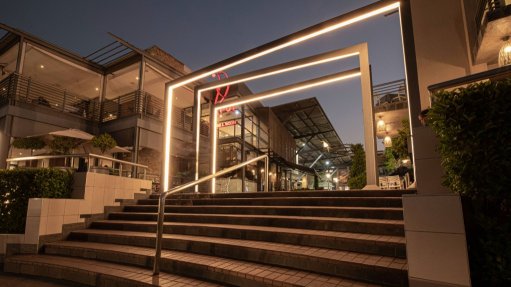The year that was
This year has been quite eventful for the African continent, but for me the biggest story has been that, despite the progress made in the two decades to 2020, we don’t seem to have seen the last of military takeovers of State power. It’s a pity that our multilateral bodies – the African Union (AU) and regional blocs – don’t seem to be able to do more than issue impotent warnings each time soldiers can’t resist the urge to be political masters as well.
True, the multilateral bodies do impose sanctions, but harsher forms of punishment aimed at the individuals who seize State power, as opposed to their countries, are needed if soldiers are really to be disincentivised from shooting their way to State power.
As I reported previously in this column, elected Presidents were ousted in Niger and Gabon this year, adding to the six toppled since 2020 – in Mali, in August 2020, Chad (April 2021), Guinea (September 2021), Sudan (October 2021) and Burkina Faso (January and September 2022).
The 2023 record could have been more dire, had some attempts not been thwarted. In September, news broke that there had been an attempt against Republic of Congo President Denis Sassou Nguesso, who was in New York for the seventy-eighth United Nations General Assembly at the time. This was swiftly rebutted by the country’s Information Ministry, which insisted that the 79-year-old leader was still very much in control. Nguesso himself ascended to the Presidency through a military coup in 1979. Following a temporary setback in 1992, when he lost his country’s first multiparty elections, he reclaimed power in 1997 following civil unrest.
In October, the Sierra Leonean capital of Freetown was jolted awake in the wee hours of one Sunday morning as soldiers tried to break into an armoury at a military base near the Presidential palace and then attacked two of the city’s main prisons. At least 19 people died in the violence, which the country’s government declared a coup attempt.
Unlike previous coups, the ones witnessed in recent years have a common denominator – they have been applauded by many citizens and can broadly be linked to democratic deficits and the inability of elected governments to deliver freedom and development.
What this shows is that simply condemning coups each time they occur is not going to stop the resurgence of the scourge. The AU and the regional blocs, such as our own Southern African Development Community (SADC), should deal sternly with the leaders of countries where misgovernance and corruption are rife and where elections are nothing but fraudulent charades. In the absence of such a stance, coups will remain a popular alternative for citizens.
The SADC has been particularly notorious, always preferring not to see, hear or speak evil when the governments of some member countries subvert citizens’ electoral choices or engage in other unacceptable behaviour. Electoral malfeasance has played out multiple times and is sure to be witnessed again in the Democratic Republic of Congo, where elections are due in less than a week, on December 20. I wonder how the outcome will be anywhere near being credible, considering that, according to some estimates, instability in the east of the country could disenfranchise more than one-million voters. What’s more, earlier this year, the head of the elections body complained that he was not sufficiently resourced to hold the elections.
But the return of the coup d’état was not the only negative African story in 2023. I also reported in this column how the effects of climate change are becoming increasingly pronounced. Floods and droughts are occurring more frequently and becoming more intense, resulting in the displacement of 7.4-million people – more than the combined population of Botswana, Lesotho and Namibia – in 2022. I also voiced concern about the overweight epidemic, which will sure consign many Africans to an early grave.
While there is little that we as individuals can do about our political overlords who prompt us to wish to see them toppled and we are, to some degree, at the mercy of climate change, we can exercise and eat well to avoid being overweight.
Article Enquiry
Email Article
Save Article
Feedback
To advertise email advertising@creamermedia.co.za or click here
Comments
Press Office
Announcements
What's On
Subscribe to improve your user experience...
Option 1 (equivalent of R125 a month):
Receive a weekly copy of Creamer Media's Engineering News & Mining Weekly magazine
(print copy for those in South Africa and e-magazine for those outside of South Africa)
Receive daily email newsletters
Access to full search results
Access archive of magazine back copies
Access to Projects in Progress
Access to ONE Research Report of your choice in PDF format
Option 2 (equivalent of R375 a month):
All benefits from Option 1
PLUS
Access to Creamer Media's Research Channel Africa for ALL Research Reports, in PDF format, on various industrial and mining sectors
including Electricity; Water; Energy Transition; Hydrogen; Roads, Rail and Ports; Coal; Gold; Platinum; Battery Metals; etc.
Already a subscriber?
Forgotten your password?
Receive weekly copy of Creamer Media's Engineering News & Mining Weekly magazine (print copy for those in South Africa and e-magazine for those outside of South Africa)
➕
Recieve daily email newsletters
➕
Access to full search results
➕
Access archive of magazine back copies
➕
Access to Projects in Progress
➕
Access to ONE Research Report of your choice in PDF format
RESEARCH CHANNEL AFRICA
R4500 (equivalent of R375 a month)
SUBSCRIBEAll benefits from Option 1
➕
Access to Creamer Media's Research Channel Africa for ALL Research Reports on various industrial and mining sectors, in PDF format, including on:
Electricity
➕
Water
➕
Energy Transition
➕
Hydrogen
➕
Roads, Rail and Ports
➕
Coal
➕
Gold
➕
Platinum
➕
Battery Metals
➕
etc.
Receive all benefits from Option 1 or Option 2 delivered to numerous people at your company
➕
Multiple User names and Passwords for simultaneous log-ins
➕
Intranet integration access to all in your organisation


















